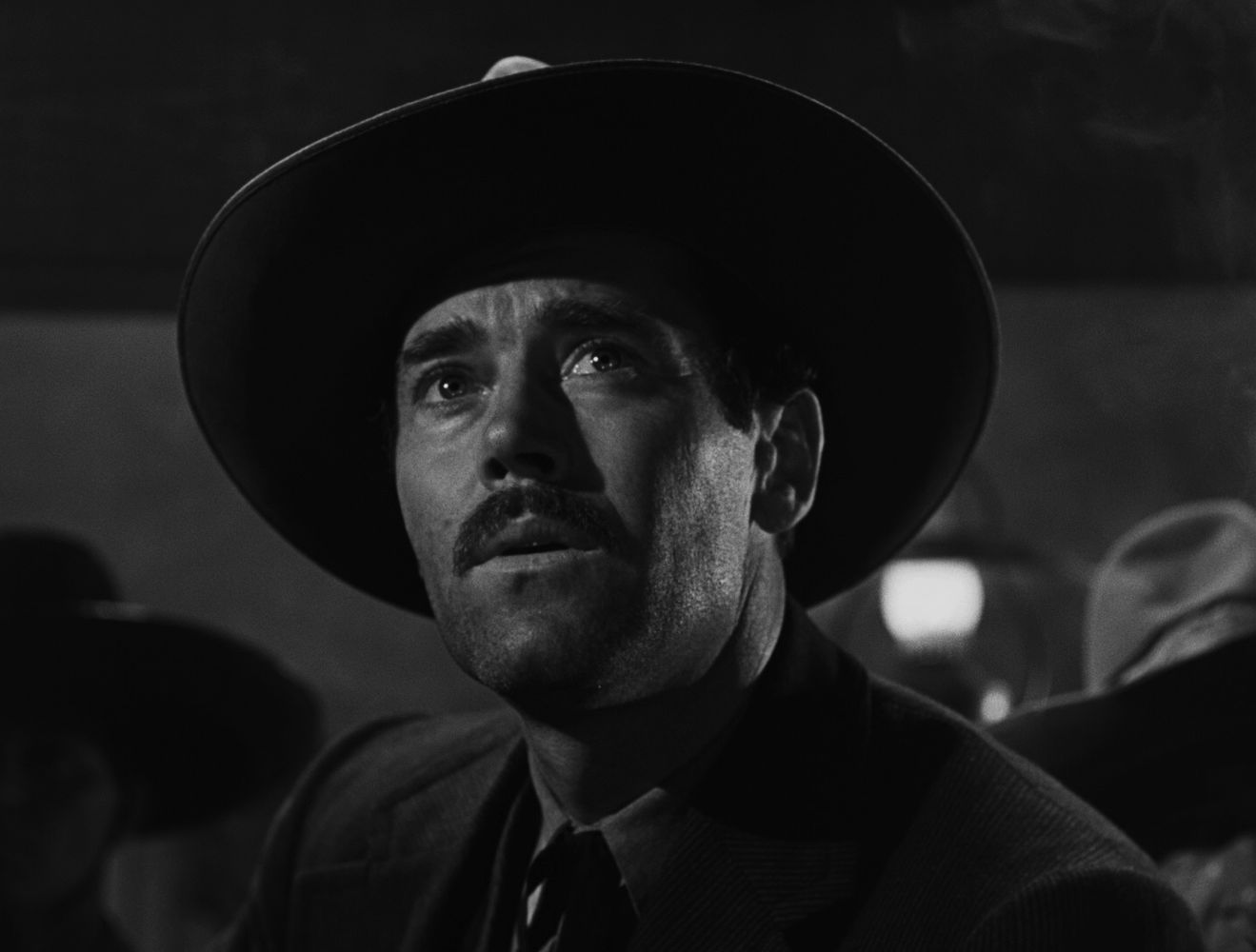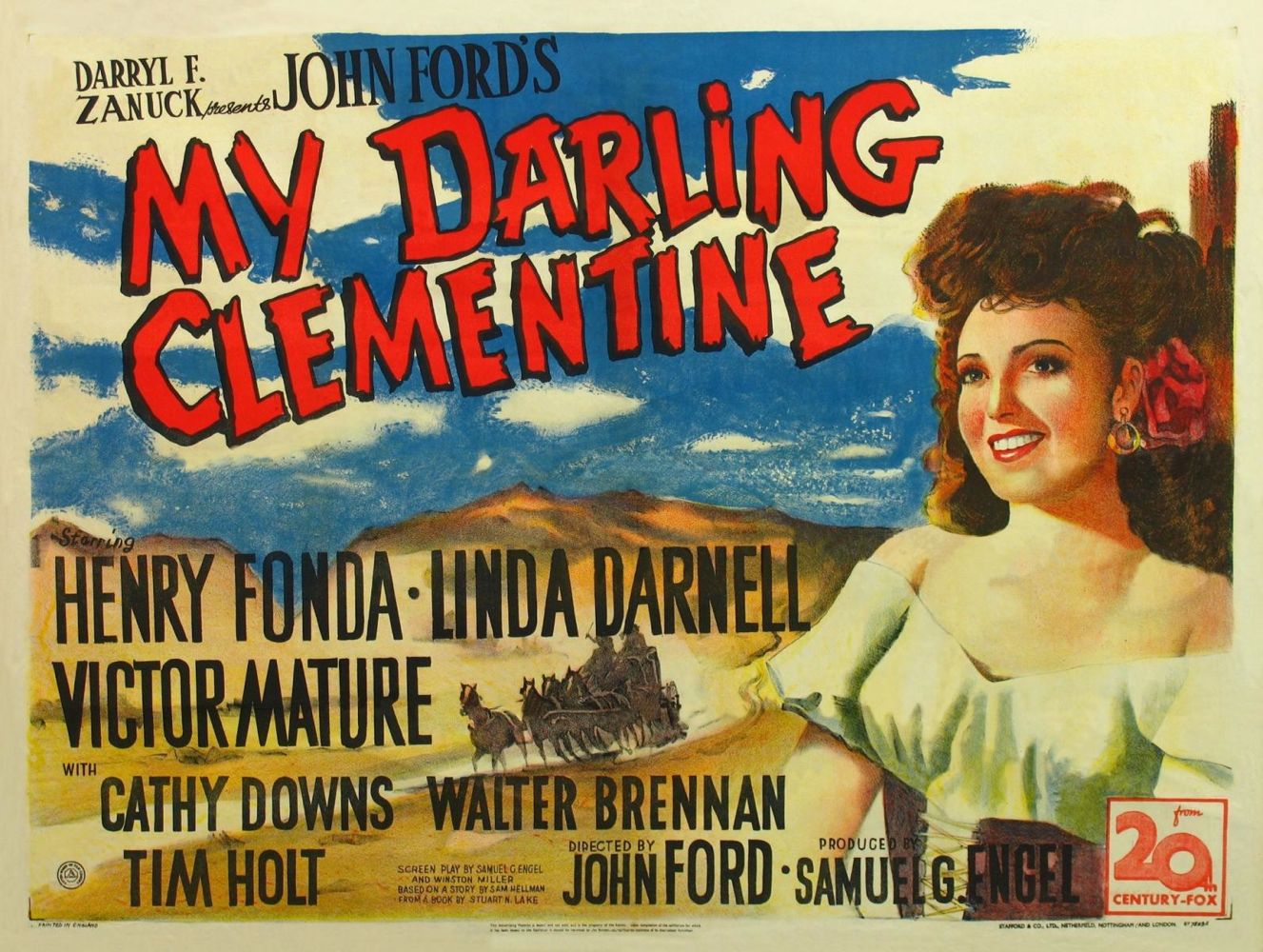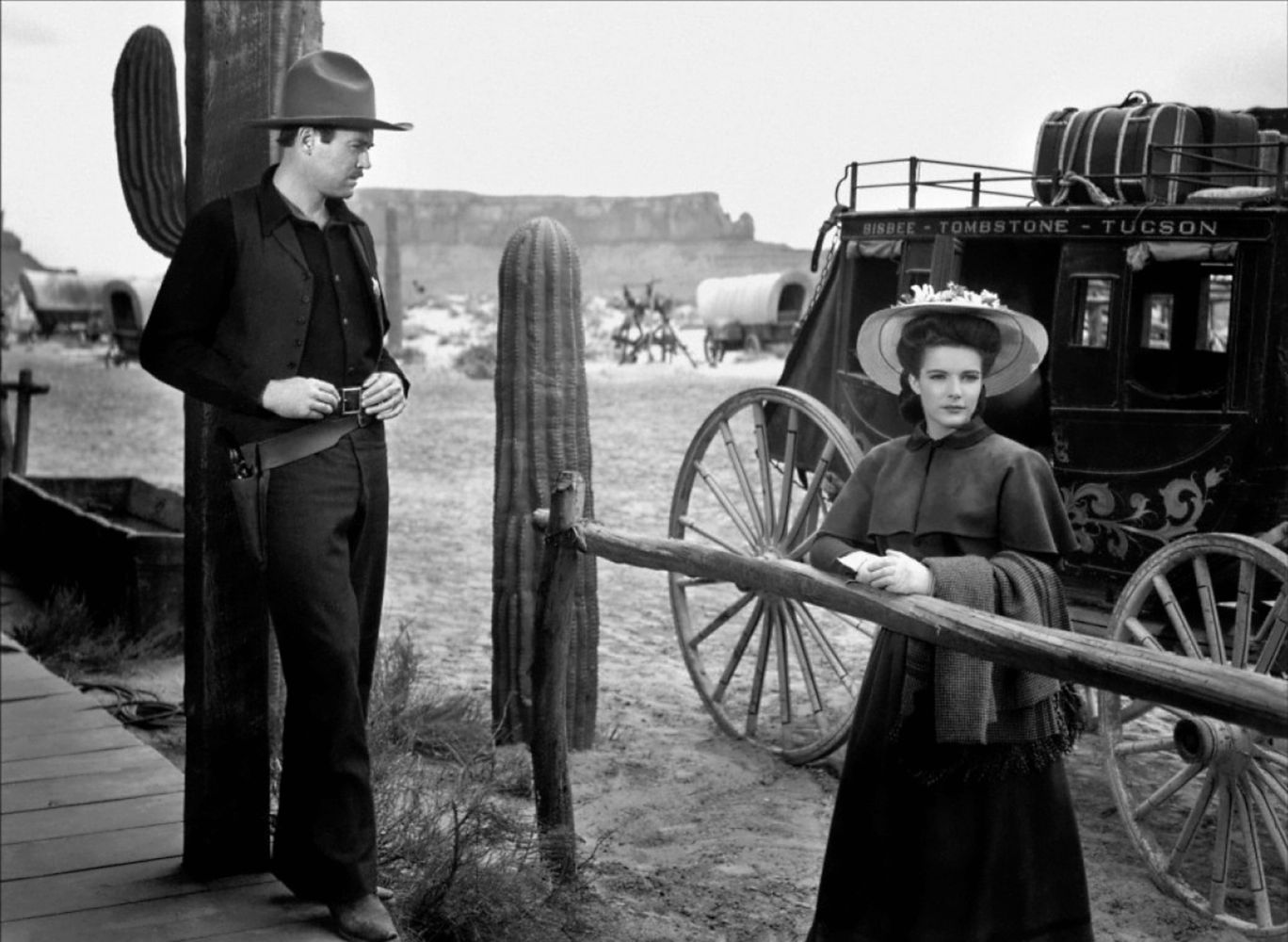Traditional Westerns work on many different levels. They embody an American national myth, a sense of the values and circumstances that forged the nation. They chart an ideal of the national character. They are pageants of pictorial and plastic beauty.
On a deeper level they are wisdom tales about manhood, and sometimes about womanhood — educations in the passage to adulthood.
John Ford’s My Darling Clementine is problematic in many respects, despite offering some of the greatest passages in any Western, indeed in any film. Its secondary narrative, involving Doc Holliday and his girlfriend Chihuahua, doesn’t seem of a piece with the rest of the film — Victor Mature, though he gives one of his best performances ever, and Linda Darnell, vexing as always, seem like visitors from another movie, another genre, another era.
Their story feels perfunctory, artificial — miles away from the deeper currents of the film, which show a wanderer, Wyatt Earp, seduced into the concerns of civilization, gallantry and love. Most importantly they present the image of an authentic manhood coming into being.
Henry Fonda’s Earp synthesizes a number of contradictory traits. He is boyish, instinctively reticent, even shy, but utterly fearless and thoroughly competent when called on to confront danger. He is unfailingly courteous towards others unless they cross the line of the unacceptable, in which case he is matter-of-factly punitive.
He is gallant towards women, even when he’s not sure what form gallantry towards women should take, even when he fears that in showing gallantry he might make a fool of himself. He’s coolly efficient when violent action is required, befuddled when dealing with etiquette towards women — but equally courageous in both predicaments.
His style of being a man defines the essence of manhood — a virility without bluster or show, a politesse without artifice or vanity. His practical resourcefulness and bravery establish his manliness without need of further proof — his humility and generosity lend his manhood a natural nobility.
There are no men like Fonda’s Earp in modern popular art, one sign of the degradation of our culture.




i smell an opportunity for some experienced scriptwriters to develop an urbane and literate hero for our times … he might even start by setting out on a crusade to clean up the sordid backstreets of las vegas …
Hollywood, run by collapsed males, would never endorse such a hero.